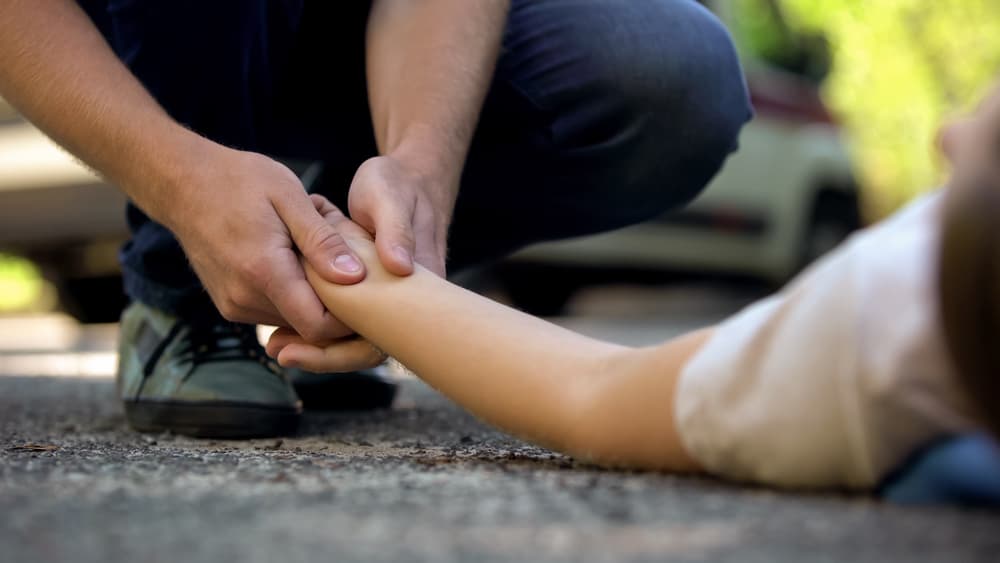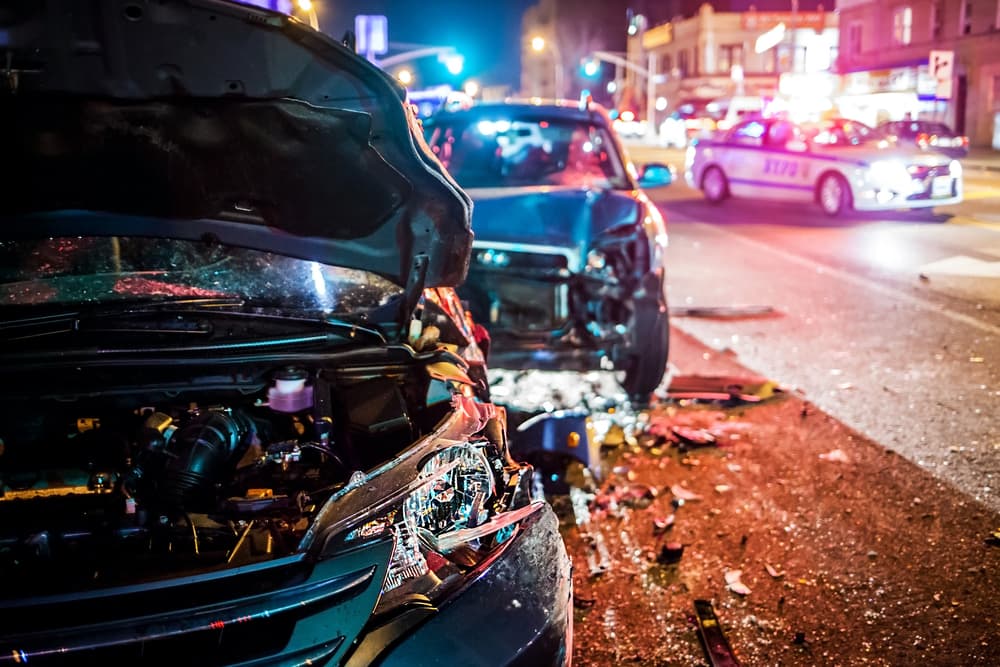There are many phases involved in the personal injury claims process. The discovery phase is one part of the process after a car accident lawyer files the lawsuit. Still, before the trial begins, that is a common source of confusion for those seeking compensation after a car accident.
This is when the parties to a dispute must share the evidence and witnesses they have that support their position with the other side so that they can prepare their own position on the matter.
Depositions are commonly used during the discovery phase to elicit out-of-court testimony from the parties involved in the car accident, eyewitnesses, and even expert witnesses such as medical professionals or accident reconstruction specialists. Here is a look at what depositions are, how they’re used, and what happens to the case after a deposition.
What Is a Deposition?

According to the University of Washington School of Law, depositions are an important feature of a personal injury claim as they allow each side to know what the parties and witnesses involved in an accident will say under oath.
The deposition is a sort of sneak preview of the sworn testimony that will be presented at trial and also provides the opportunity for either side to evaluate the information provided in this out-of-court testimony to inform decisions that the parties must make about the status of the case.
Depositions are often held at the offices of one of the car accident attorneys involved with the case, though sometimes the party holding the deposition must rent a venue to hold the deposition.
The witness deposed is placed under oath, and the attorneys from each side of the dispute can ask questions of the witness. Depositions commonly last for several hours and can usually be held for up to seven hours. During this time, a court reporter records the questions posed by each side’s legal counsel and the witnesses’ answers.
Lawyers may depose you after a car accident if you take legal action against the at-fault driver. Your attorney will inform you in advance if a deposition has been requested and will help you prepare for the experience by going over the questions you will likely be asked, documents that you will likely be shown and expected to discuss, and how to answer the questions that are posed during the deposition.
Post-Deposition Actions
Once the deposition is complete, several actions are taken that can inform the attorney’s legal strategy for presenting the case in court. There is no single outcome to a deposition, but several actions are commonly taken.
A Court Reporter Prepares a Transcript
The court reporter who attends the deposition will prepare an official transcript for both sides. Each side may review the testimony and request corrections to any errors.
As explained by Deposition Academy, despite the preparations and practices exhibited by the court reporter, mistakes often happen during the transcription of a deposition. If errors are discovered, the parties to the dispute usually have around 30 days to submit a correction. After carefully reviewing the document, the deponent must submit a signed statement that lists any changes that need to be made to the official transcript.
Once the deponent and their attorney have submitted the statement requesting changes to the transcript, the opposing attorney and their client will have the opportunity to review these suggested changes to determine if the request involves typographical changes or alters the outcome of the case.
If the requested changes alter your or your attorney’s previous statements about how the accident occurred, you can expect further questioning on the matter at trial and even accusations that you have changed your story.
An Independent Medical Examination Can Be Ordered
One of the common outcomes of being deposed for a personal injury case is that the at-fault party or their attorney can request an independent medical examination, commonly referred to as an IME. As noted by a study published by the Canadian Medical Association Journal, an IME involves a physician who conducts a medical evaluation but has not provided treatment to the patient.
Because these evaluations are provided by a physician of the requesting party’s choosing, the evaluation is viewed through the lens of the defendant or the insurance company, which commonly raises questions about the fairness of the IME, as the examiner conducting the evaluation is told what to look for by the at-fault party’s insurer.
The IME aims to determine whether the injury sustained by the claimant is as severe as it claims to be. The examiner will often begin the examination by taking a medical history from the patient and asking questions about the impact the accident had on their ability to function. The examiner will then test the types of activities the claimant can perform and the impacts of their injury on their ability to conduct daily living activities independently.
If the defendant and their attorney request that you undergo an independent medical evaluation, there is no way to get out of having the exam. However, your attorney will help you prepare for it and will work to mitigate any fallout from the examination that could impact your ability to receive compensation for your injuries.
Potential Outcomes to Witness Depositions
Depositions are an important part of the personal injury claims process, and many case-resolving actions can be taken after the deposition transcript is made available. Here is a look at the possible outcome of a witness deposition.
A Summary Judgment is Requested
According to Cornell Law School’s Legal Information Institute, the court can make a summary judgment if there are no disputes of material fact in the claim. Material facts refer to aspects of the case that could result in the court deciding in favor of one party or another.
For example, the defendant’s attorney can request a summary judgment if the plaintiff in the case were to admit under oath that they had lied about the severity of their injuries. The claimant’s attorney could request a summary judgment if the defendant admits under oath that they had been impaired by alcohol when the accident occurred.
If the judge approves the motion for summary judgment, the trial will be canceled, and a judgment on the claim will be rendered based on the information made available by the side requesting the judgment.
A Settlement Is Offered
In many cases, it will become clear after the deposition that the claimant has the evidence and documentation to show that the at-fault party was liable for the accident that caused their injury. The attorney representing the at-fault driver and their attorney will share the first offer for car accident settlement.
Insurance companies often choose settlements for resolving claims because litigation is expensive and typically features an outcome based on how a judge or jury views the evidence presented from both sides. If the deposition clarifies that the at-fault party will lose at trial, the insurance company can attempt to retain control over the amount paid to the claimant and save themselves the expense of losing the case in court through a settlement.
The Trial Proceeds as Planned
In some cases, both the plaintiff’s attorney and the attorney for the defendant will obtain the information they need to proceed with discovery, eventually with a trial.
As the American Bar Association explained, several other types of discovery can factor into the legal strategy of each side, including:
- Subpoenaing records and documents held by the other side for inspection.
- Requesting written testimony from the other party, such as written interrogatories, involves a series of questions that one side has for the other.
- Affirming that documents that have been submitted as evidence is genuine.
- Requesting that the other party submit to a physical or mental health evaluation.
After the discovery phase is complete, if there has not been a motion made by either side of the dispute to dismiss the case, the trial process begins. This process first involves jury selection in cases that a jury will hear. The attorneys from both sides are invited to participate in selecting a jury. After a jury is seated, the attorneys will begin presenting their cases.
Tips for a Useful Deposition
As noted, if you are deposed by the at-fault party or insurer’s attorney, your legal counsel will help you understand what to expect from the experience.
Some tips can make the exercise as helpful to your case as possible:
- Telling the truth about what happened in your accident to the best of your ability.
- Listen carefully to the question and provide an answer that fully addresses the question that was asked without straying into other issues that will likely prompt additional questions or contradict information you have given in the past.
- Don’t be afraid to say “I don’t know” in response to questions that are asked that you do not know the answer to. Avoid guessing or speculating in your response.
- Answer the questions slowly, as the court reporter needs the opportunity to hear and record your precise responses.
How Long Does a Personal Injury Trial Last?
While it can take many months to prepare a personal injury claim for trial, the trial generally only lasts a few days in most cases, with the bulk of the first day spent selecting a jury.
There is no standard length of time for car accident trials, but one of the factors that makes a trial last longer is if there are several witnesses who need to testify for either side. Your car accident attorney will likely want you to testify.
Other individuals who can be asked to testify on your behalf include:
- Doctors who provided your treatment or who are available as medical experts to speak to the jury about the types of impacts commonly experienced by people who have suffered the same injury
- Family members, friends, and coworkers can be called to testify about how the injury has affected your daily life and your ability to complete tasks independently at work or home.
- Anyone who witnessed the accident and can testify about what they saw
The trial can also feature testimony that the defendant’s attorney presents. Everyone who testifies for one party or another will be subject to cross-examination by the other side’s attorney. The judge or jury will also have the opportunity to view the evidence that has been gathered to prove the case.
Common types of evidence used in car accident cases include the accident report created by the police officer who investigated the accident scene, photographs of visible injuries, and receipts for medical bills and other expenses, such as repairing or replacing your vehicle.
After the presentation of evidence and the examination and cross-examination of everyone testifying, the judge or jury will take time to consider the case before deciding whether liability has been proven and if so, how much compensation is owed by the at-fault party to the claimant.
Receiving Your Award

Whether your case is resolved through a settlement or litigation, the compensatory award owed to you will be sent directly to your attorney. Because of the contingent fee billing method that personal injury lawyers in Myrtle Beach use to ensure that their services are available for anyone who needs them, your attorney will only get paid for their services once compensation is received on the claim.
They will withdraw a designated percentage of the total award for their payment and help you settle medical liens placed on the claim. Once those actions are taken, it will be time for you to sign documentation finalizing the case and to receive your compensation.







